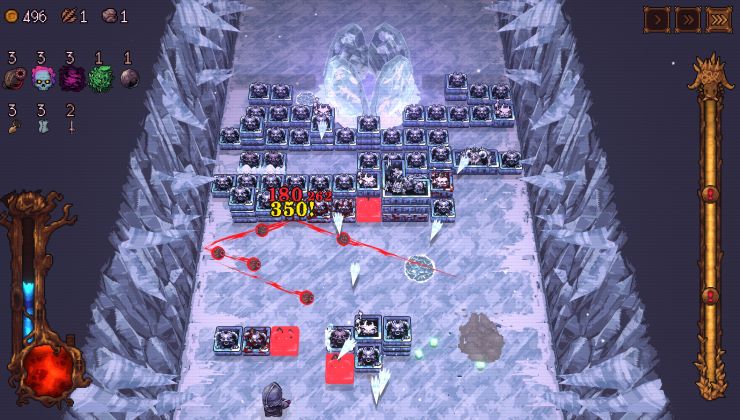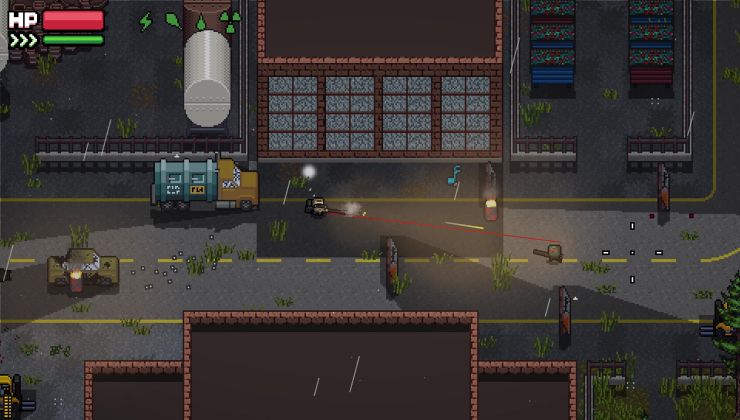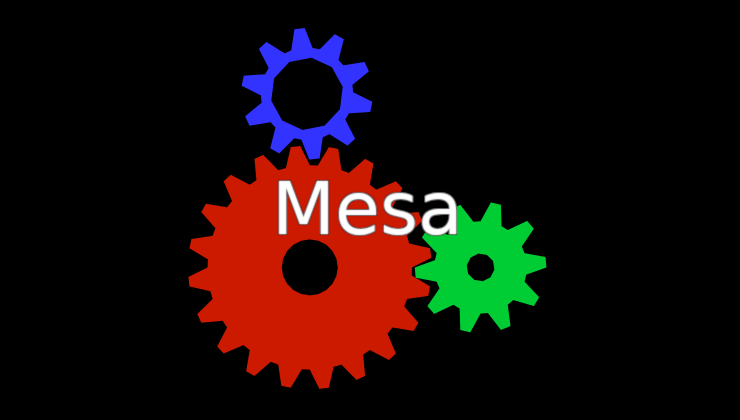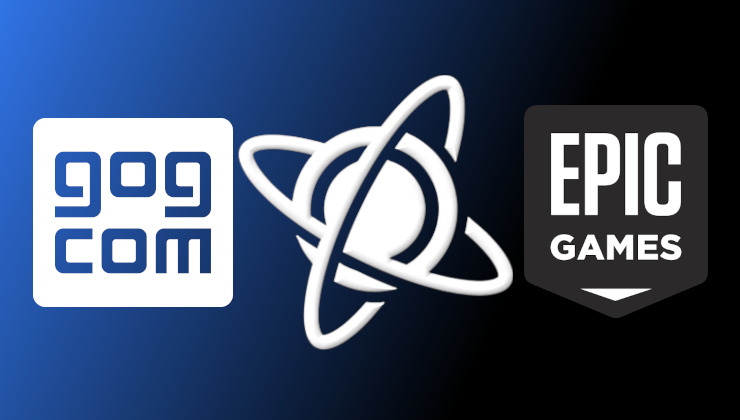Looks like Linux gaming may get yet another boost, thanks to Google? Yes. Backing up previous information on Steam support coming to Chrome OS it looks like the project is still going.
This isn't some kind of wild rumour either, given the previous info with Google's own Kan Liu confirming their plans. This time the report comes from 9to5Google, which points out something being worked on called "Borealis" which appears to be a kind of Virtual Machine with a full copy of Ubuntu and Steam pre-installed and ready to go. It's interesting as they already had Crostini with Debian but it appears they're going a different way for Steam.
While Google now have Stadia to bring gaming to almost any device out there, they of course want more to people to buy their own devices with Chrome OS and enabling more gaming is a big way to push them. This is where Steam comes in, since it already supports Linux and Chrome OS is built from Linux.
Chromebooks are steadily getting more powerful too, as they bring in newer generation Intel processors that can handle a bit of a load and it appears AMD Ryzen Chromebooks will also enter the scene soon. So with Steam on Linux and more powerful internals, things are aligning for more serious gaming on Chrome OS.
Since Chromebooks are incredibly popular devices, being able to tap into another big market would be a welcome boon for Linux gaming as a whole.
Whenever I think of Google using Linux, I think of how Google make things from that can't be used in Linux.
I can't get any more excited about Chrome OS than I can about Android ... both of which are based on Linux, but neither of which are actually Linux --- thus the need for a VM to run Linux's Steam client.
I really don't feel gaming on Chrome OS is any more appropriate to Linux gaming than gaming on Android is, really.
Well, one thing to remember here: Linux is just the kernel! It's not a full OS like MS-Windows, MacOS, etc. So Android & ChromeOS are Linux but that doesn't mean they're compatible with GNU/Linux distros and LSB-compliant.
So this makes would make it rather questionable if it would help for the type of Linux gaming discussed here if Steam and the games would be native versions for ChromeOS. But as they seem to have a VM with Ubuntu it will surely massively increase the audience / possible customers for SteamOS compatible games which might attract more developers. Though a VM seems rather inappropriate. I remember the Wrapper-stuff VirtualProgramming did and that had some issues that never got fixed (or the early "ports" didn't get patched).
So the question is, how long it will stay in that state and if google tries to "force" getting native ChromeOS versions and how Valve and other developers will react to that. I think it will have an effect short-term, but long-term I'm very unsure where this will be heading. But I'll keep hoping that developers will realize that platform independence is the best way to keep their customers with dynamic OS environment situations as we're experiencing shifts right now.
i dont see how this issue is solved by regular distros.
even linus torvalds himself complain that you have to make an binary for each distro and for each version of that distro, or things may just broke, he said something like that then praised the appimage initiative.
now... if someone can tell me how to install open mortal on a debian based distro in 2020, i would be grateful.
the game sucks, but not being able to install an linux software on linux, having to install the windows version of it on wine shows that we are not in a position to complain about android/chromeOS being incompatible.
Ah, I get your point now. Yeah, sure enough . . . I've been saying for a while that if Google want to move ChromeOS up from their little niche, they're going to have to give in and admit that a browser does not an OS make. And they're sortamaybe doing that, but they really seem adamant to un-cripple it as little as they possibly can, and maybe less.That's exactly my point. Your wife is the original target demographic for Chromebooks.I find Googles direction for Chromebooks very confusing. [...] full-blow VM [...] This is the exact opposite of simple.Users don't see any of that though. My wife has one. All she ever uses a computer for is web browsing, email (in the browser), and occasional small documents.
By adding Crostini they more or less acknowledge that you need a real Linux distribution if you want to do some productive work. Like run Gimp, Inkscape, Audacity, or anything else that even a non-techie user may want to do from time to time. But then they do it in the most obscure way possible, so that a non-techie user never will.
even linus torvalds himself complain that you have to make an binary for each distro and for each version of that distro, or things may just broke, he said something like that then praised the appimage initiative.If we're talking about games (as I suppose we should on GOL), trying to support every single distro is pointless. Just support the latest stable or LTS release of whatever distribution most of your target audience games on, bundle your libraries (or target a runtime) and let users of other distros figure it out as needed. Or you can package with appimage, I guess, in case you're not on Steam/Itch/GOG.
Call the diversity of the Linux ecosystem a problem if you want, but I'd argue that the pros outweigh the cons. Choose a common distro if you don't want to spend too much time fiddling with your system. That's what I do these days.
now... if someone can tell me how to install open mortal on a debian based distro in 2020, i would be grateful.There's plenty of old Windows / Mac software that won't install on modern versions of these operating systems too. That's not a Linux problem. Sometimes it's necessary to break compatibility if you don't want to stifle innovation. Or in some cases, if you want to build more walls around your garden I suppose. Web software isn't completely safe from this either.
the game sucks, but not being able to install an linux software on linux, having to install the windows version of it on wine shows that we are not in a position to complain about android/chromeOS being incompatible.
At least open source stuff can be updated, if there's interest. Apparently there's not enough interest in Open Combat.
ChromeOS/Android not being standard Linux distributions is a completely separate issue, if it is indeed an issue. I'll just avoid both Android and ChromeOS, thank you very much.
I see ChromeOS as a good way to trick people too scared of Linux to use it. Since it didn't have Linux on its name nor it is easily found in its literature, people actually try it because of the weight of the Google and Chrome names.
Yesterday a youtuber from a tech channel I follow, said he will never use Linux on his PCs because "I like to do work on my computer, not work on my computer". The poor bastard, while being a tech nerd, completely missed that he actually do a ton of his work on a Linux machine...
he is right.
just try to do something out of the curve on linux and you may struggle with it.
linux can be a real pain sometimes.
Part of my work is to provide technical support for my coworkers. And every time I am called to fix some dead simple thing, like why the printer is not working, makes me realize one thing: Windows is not that easy to use thing people think it is. Day after day people get into trouble and I myself struggle to fix some things sometimes. The amount of work to do some things can be astonishingly high. You want to know what your IP is? Is buried deep down on the system. On most Linux distros, with the likes of KDE or Unity? It is a couple clicks away, right there on the network icon.
The question here is knowledge. What makes a thing easy to use is having knowledge to do it. If you have struggled on the beginning a decade or so ago, by now you have knowledge to fix most problems on Windows. BUT, that only happens if you are a tech nerd. If you are one of those that couldn't care less about computers and call tech support every time a little problem occurs, you would not differentiate Windows from Linux after a couple weeks of daily use. Just ask my sister.
A little revelation is that the amount of people using Windows, without a single clue of what is happening, is ridiculously high, like 90% or more. They simply click their way until something they want happen. So now they are satisfied and claim Windows is easy, because they are doing "work" on it. Move shortcuts around or change the theme and suddenly they are all dead in the water. Any support guy knows that. But people keep using it, and call it easy, but at any problem in sight, the supposed easy of use disappear like magic. So Windows is called user friendly because it is easy to use, or because it is what people are familiar with, having never used something different to make a solid statement?
When I saw people calling Linux difficult to use, is generally people fairly knowledgeable on Windows, capable of doing most maintenance tasks right and, when they move on Linux, they get fairly uncomfortable because now they are starting from zero. They are not the guy people ask for advice, now instead he is the "dumb user" asking for it, and that sucks. I know because I was there.
Windows is easy to use? Sure, look how empty are the tech support forums...
All that stuff is irrelevant to this case. What's relevant is, Chrome OS has a significant amount of desktop-like market share
This seems to be mainly a US thing to me. According to netmarketshare.com, their significant amount is way below that of Linux. (It doesn't even fit on [the first page](https://netmarketshare.com/operating-system-market-share.aspx?options=%7B%22filter%22%3A%7B%22%24and%22%3A%5B%7B%22deviceType%22%3A%7B%22%24in%22%3A%5B%22Desktop%2Flaptop%22%5D%7D%7D%5D%7D%2C%22dateLabel%22%3A%22Trend%22%2C%22attributes%22%3A%22share%22%2C%22group%22%3A%22platformVersion%22%2C%22sort%22%3A%7B%22share%22%3A-1%7D%2C%22id%22%3A%22platformsDesktopVersions%22%2C%22dateInterval%22%3A%22Monthly%22%2C%22dateStart%22%3A%222019-07%22%2C%22dateEnd%22%3A%222020-06%22%2C%22segments%22%3A%22-1000%22%7D)...)








 How to play games from GOG and Epic Games on Linux, SteamOS and Steam Deck
How to play games from GOG and Epic Games on Linux, SteamOS and Steam Deck How to get Battlefield 3 and Battlefield 4 online working on Linux, SteamOS, Steam Deck
How to get Battlefield 3 and Battlefield 4 online working on Linux, SteamOS, Steam Deck